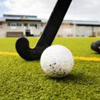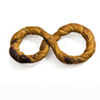News
We're getting very excited about the medals that will be awarded in canoeing and kayaking over the next three days. But here's a question: does having lots of paddlers helps or slow the boat down? The kayak with two paddlers has twice as many "engines" to power it, but it also has twice as much weight to drag through the water. Which is the dominant factor?
The first Olympic weekend is over! Of course it's the taking part, not the winning, that counts, but let's face it: it's the medals, especially the gold ones, we all get most excited about. So while we were sitting glued to the telly watching the joys of weightlifting, archery and judo we started pondering some serious questions....
The eyes of the world will be on London tonight as the opening ceremony will mark the start of the London 2012 Olympic Games. The ceremony will feature the largest harmonically tuned bell in Europe, there'll be NHS dancers, the Queen will be there too of course, and the grand finale will be the Olympic torch lighting the cauldron. While London has been gearing up for these momentous events, we here at Plus have been busy too.
Yesterday we brought you two Olympic brainteasers and here are another two. Enjoy!
While the athletes are flexing their muscles, why not train your brain with these two Olympic puzzles?
What can you do to out sprint Usain Bolt to the taxi rank? Was he unlucky to lose at the Jamaican trials or is Yohan Blake really faster? Get in training for a summer of sport with a talk from John D. Barrow at the Science Museum tomorrow, 25th July. The talk is part of an evening dedicated to science and sport, part of the Science Museum Lates series.
Will Britain be able to turn the home advantage into the top spot on the medal table this Games? Predicting medal counts is a tricky business, but, never afraid of a challenge, we will reveal our own predictions for the top 20 countries here on Plus on Friday. In the meantime, why not come up with your own mathematical method for predicting the results? To help you along, here are two articles we produced for the 2008 Games in Beijing:
Only four days to go until the start of the London 2012 Olympic Games! To get into the spirit, we cast our minds back to one of our favourite features of the 2008 Beijing Games: the beautiful aquatics venue, known as the water cube. Looking like it had been sliced from a giant bubble foam, the design was based on an unsolved maths problem. And although the bubbles look completely random, the underlying structure is highly regular and buildable.
Henri Poincaré died 100 years ago today. He is most famous for the conjecture (now theorem) which carries his name and which remained unproven for almost 100 years, until Grigori Perelman announced a proof in 2003. But the famous conjecture isn't all there was to Poincaré.
If it looks like the Higgs... and it smells like the Higgs... have we finally found it? Most physicists agree it's safe to say we've finally observed the elusive Higgs boson. And perhaps that is not all....
Word on the particle physics street (a very small street) is that tomorrow's announcement from CERN will be very exciting indeed. Find out what all the excitement is about: what the Higgs boson is, what it does and how to hunt for it.
Greetings from the beautiful city of Krakow, where the 6th European Congress of Mathematics has opened today! Around 1,000 mathematicians, donning hats, fans and flip-flops to resist the incredibly hot weather, have come together here to chat, share and listen to lectures, and Plus will be reporting from the congress all week.

